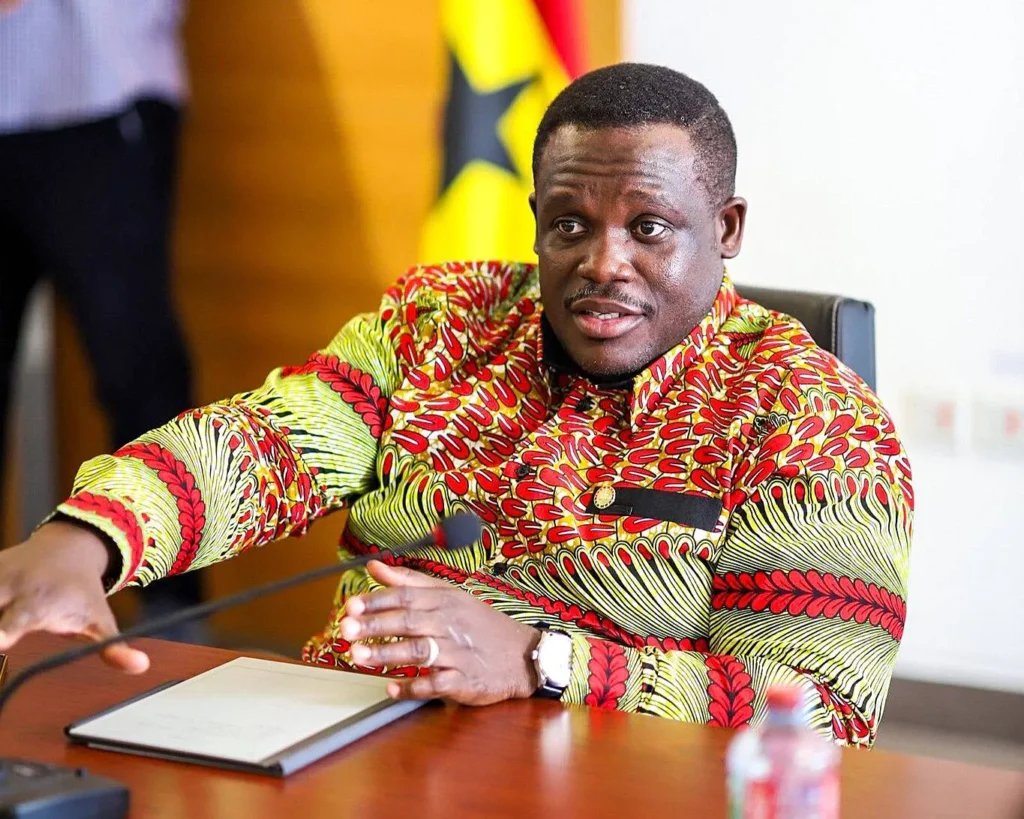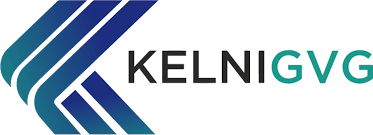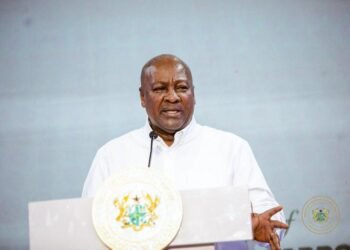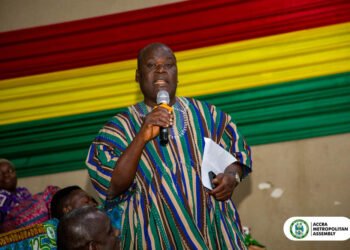The Ministry of Communications has launched aggressive ICT reforms and cleanup of questionable digital infrastructure contracts, beginning with the high-profile KELNI-GVG revenue monitoring agreement.
As part of a broader wave of reforms, Minister of Communications Hon. Samuel Nartey George disclosed at the Government Accountability Series briefing on Friday, August 1, 2025, that this contract is under formal review for cost-effectiveness and compliance.
The KELNI-GVG deal, originally introduced to oversee mobile revenue assurance, has come under intense scrutiny after payments to the contractor ballooned from 28% to 84% of total revenue as of October 2024.
In response, the Ministry has directed that the contract be renegotiated for the remaining duration and has firmly resolved not to renew it upon expiration. Legal advice is being awaited from the Attorney General’s Department to determine the next steps.
This decisive action is part of the Ministry’s alignment with the government’s Operation Recover All Loots initiative.
“At the Ministry, we have taken action aimed at reform, integrity, and oversight. Because, as I stated in my first accountability report, we believe that the Operation Recover All Loots initiative of His Excellency, the President, is multi-sectoral. And so at our ministry, we have decided to embark on that.”
Hon. Samuel Nartey George
Accordingly, Hon. George emphasized that the digital sector, often operating behind complex technical layers, must also be subjected to full transparency and legal accountability.
In another major intervention, the Ministry addressed longstanding concerns around Smart Infraco, a private firm that had held exclusive control over Ghana’s National Data Center infrastructure.

At the time of President Mahama’s return to power, the National Information Technology Agency (NITA), the government body legally mandated to oversee the nation’s digital assets, had no access to the data center.
That imbalance has now been rectified. NITA currently has 95% access, including root-level control of the National Data Center and associated government systems.
This shift restores public ownership over a critical national asset and reinforces the Ministry’s commitment to restoring state oversight across the digital architecture.
However, beyond technical access, Smart Infraco is also facing allegations of financial noncompliance. Under its contract with the Ministry, the firm was required to pay $2 million upfront and $1 million annually.
These obligations have reportedly not been honored. The Ministry is actively enforcing those payment terms, and legal recourse, including possible contract termination, remains on the table if arrears are not settled promptly.
Gov’t Targets Transparency In Tech Deals, ICT Reforms
Hon. Sam George also touched on the performance of the Next Generation Infrastructure Company (NGIC), the exclusive neutral host for 4G and 5G mobile infrastructure.
According to the Ministry, NGIC has made some progress in deploying 5G-capable infrastructure. So far, 16 sites are live, and the National Communications Authority has granted full approval for NGIC’s core infrastructure.
“The NGIC, Next Generation Infrastructure Company, the exclusive shared neutral 4G, 5G infrastructure provider, is progressing steadily towards its target of activating 355 G-ready cell sites by the last quarter of 2025, with at least 550 live sites for 5G expected in Accra and Kumasi. As of today, NGIC has deployed 16 5G-ready sites and received full NCA approval for its core network infrastructure.”
Hon. Samuel Nartey George
The final leg of the ICT reforms centers on Ghana’s central digital payment gateway, Ghana.gov.
During the previous administration, the platform operated without any formal contract, despite receiving hundreds of millions of Ghana cedis in recurring monthly payments.
This absence of legal grounding has raised questions about procurement, accountability, and value for money.
Since the change in government, all payments to the Ghana.gov operators have been frozen. The Ministry has initiated a complete redesign of the project in partnership with the Ministry of Finance.
The revamped Ghana.gov platform is expected to launch in Q4 2025, with improvements including Ghana Card integration, enhanced user interfaces, and harmonization of all government payment systems under one secure portal.

The redesigned platform is currently under procurement review at the Public Procurement Authority, with a public tender process expected to follow.
This marks a departure from the opaque practices of the past, in keeping with the Mahama administration’s drive toward full transparency in digital service delivery.
These developments signal a turning point in how Ghana manages its digital infrastructure and public-private partnerships.
By targeting inflated contracts, reclaiming state control of critical assets, and demanding compliance from private entities, the Ministry is sending a clear message: public interest and legal integrity will now define the digital landscape.
As Ghana transitions into a fully digital economy under the banner of President Mahama’s 24-hour economy agenda, these bold ICT reforms aim to set a new gold standard for governance in the tech sector—one built on oversight, efficiency, and public value.























